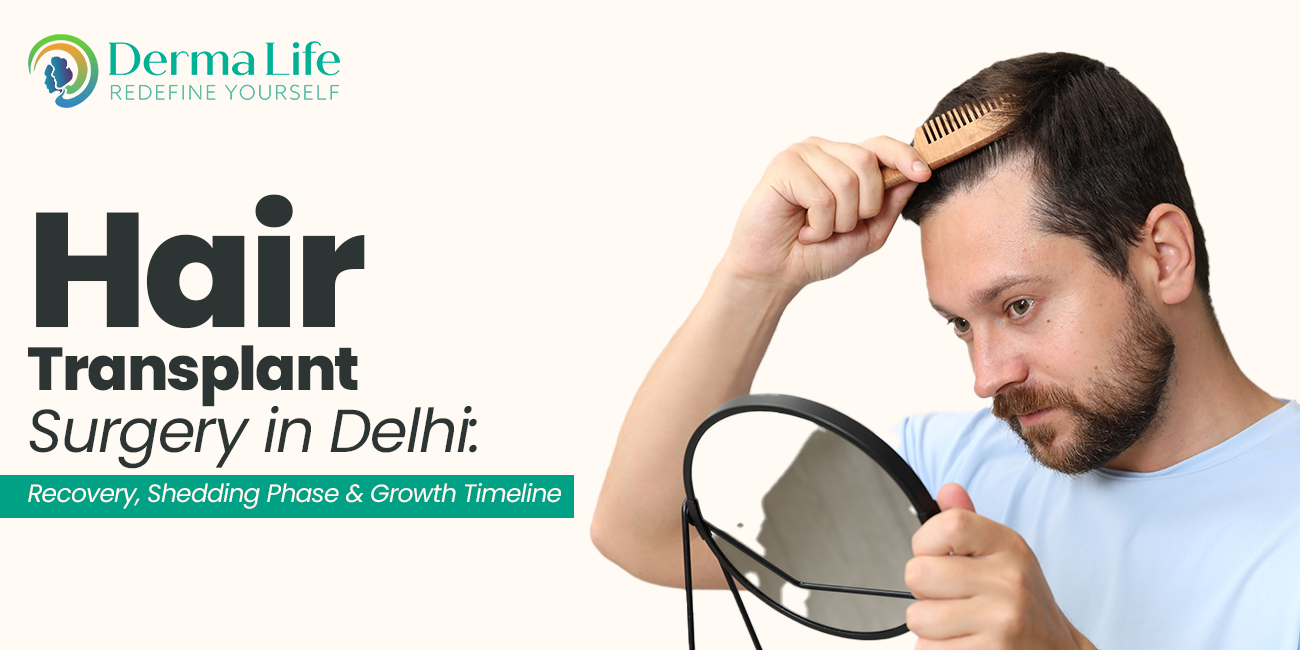In the fast-paced, high-stress world we live in, it’s not uncommon to experience an occasional bout of stress. From work pressures to personal challenges, stress is an inevitable part of life. However, what many people may not realize is that the toll stress takes on our bodies can extend beyond the emotional and psychological realms.
One significant concern that has been garnering increasing attention is the link between hair loss and stress. In this article, we will delve into the intriguing question: “Can stress lead to hair loss?” We will explore the science behind this connection, the types of hair loss, and ways to manage and potentially prevent stress-induced hair loss.
Understanding Stress and Its Effects on the Body
Before delving into the relationship between stress and hair loss, it’s crucial to comprehend what stress is and how it affects the body. Stress is a natural response to challenging situations, and it can be triggered by various factors, including work pressures, personal issues, or even traumatic events. It’s important to note that stress, in moderation, is a normal part of life and can even be motivating. However, when stress becomes chronic or overwhelming, it can have adverse effects on both our mental and physical well-being.
Physiologically, when we encounter a stressful situation, our body’s “fight or flight” response is activated. This response involves the release of stress hormones, primarily cortisol, by the adrenal glands. These hormones prepare the body to deal with the perceived threat by increasing heart rate, sharpening focus, and mobilizing energy reserves. While this response can be life-saving in short-term emergencies, chronic exposure to high levels of stress hormones can lead to a range of health problems, including stress hair loss in females.
Types of Hair Loss
Hair loss is not a one-size-fits-all phenomenon; there are different types of hair loss, each with its distinct characteristics and underlying causes. Two of the most common types are androgenic alopecia and telogen effluvium.
-
Androgenic Alopecia
Androgenic alopecia is a hereditary condition that affects both men and women. In this type of hair loss, individuals experience gradual, patterned thinning of hair over time. It’s primarily driven by genetic factors and hormonal imbalances, making it distinct from stress-induced hair loss.
-
Telogen Effluvium
Telogen effluvium is a condition in which an unusually high number of hair follicles enter the resting (telogen) phase of the hair growth cycle simultaneously. This results in increased hair shedding, which can be particularly distressing. More importantly, stress hair loss often falls under the category of telogen effluvium, making it a key focus of our discussion. Let’s delve deeper into how stress can lead to telogen effluvium and what that means for your locks.
Telogen Effluvium: The Stress-Related Hair Loss
Telogen effluvium is a specific type of hair loss that often goes hand in hand with stress. To understand this condition better, let’s first explore the hair growth cycle.
The hair growth cycle consists of three main phases: anagen, catagen, and telogen. Under normal circumstances, only a small percentage of hair follicles are in the telogen phase at any given time. However, when stress disrupts the body’s equilibrium, it can trigger a phenomenon called telogen effluvium. During this condition, a significantly large number of hair follicles abruptly enter the telogen phase and remain there longer than usual. As a result, more hair enters the shedding phase simultaneously.
Stress hair loss, or telogen effluvium, can be alarming because it appears as a sudden and substantial increase in hair shedding. This hair loss is often diffuse, meaning it affects the entire scalp rather than following a specific pattern, as seen in androgenic alopecia.
Research and Studies
Numerous research studies have delved into the connection between stress and hair loss, shedding light on the underlying mechanisms. These studies have consistently established a link between high-stress levels and hair shedding.
Research findings suggest that chronic stress can lead to an overproduction of stress hormones, such as cortisol, which can negatively impact the hair growth cycle. However, it’s important to note that individual experiences may vary significantly. While stress can be a contributing factor to hair loss, it is seen in conjunction with other factors like genetics, diet, and overall health.
These variations underscore the complexity of hair loss due to stress and anxiety and emphasize the importance of a holistic approach when addressing the issue.
Recognizing Stress-Induced Hair Loss
Recognizing stress-induced hair loss involves paying attention to certain telltale signs. One of the most noticeable indicators is an increased rate of hair shedding. Individuals may observe more hair in their brushes, on their pillows, or in the shower drain. Additionally, changes in hair thickness and volume can be evident, with the hair appearing thinner and less dense.
However, it’s essential to note that these signs, such as increased shedding and changes in hair thickness, can overlap with other types of hair loss or underlying health issues. To accurately diagnose stress-related hair loss and rule out other potential causes, it’s crucial to consult a healthcare professional or dermatologist like Dr. Gaurav Garg. He will perform a thorough evaluation of your scalp and recommend appropriate treatment options tailored to your individual needs.
Managing Stress-Induced Hair Loss
While addressing stress-related hair loss may require professional guidance, several practical steps can be taken to manage and reduce stress, thereby mitigating hair loss. Here are some strategies:
- Stress Reduction Techniques: Incorporate relaxation practices into your daily routine. This can include deep breathing exercises, meditation, yoga, or mindfulness.
- Regular Exercise: Engage in regular physical activity, as it promotes the release of endorphins, which are natural stress relievers. Aim for at least 30 minutes of exercise most days of the week.
- Healthy Diet: Eat a balanced diet rich in vitamins, minerals, and proteins that support hair health. Omega-3 fatty acids, found in fish and flaxseeds, are particularly beneficial.
- Adequate Sleep: Prioritize getting enough sleep, as sleep deprivation can exacerbate stress. Aim for 7-9 hours of quality sleep each night.
- Relaxation Activities: Engage in hobbies and activities that bring you joy and relaxation, whether it’s reading, painting, or spending time in nature.
Seeking Professional Help
If you are experiencing hair loss, particularly hair fall, due to stress, it is crucial to consult a dermatologist or healthcare provider. They can accurately diagnose the cause of your hair loss and recommend appropriate treatments or interventions tailored to your specific needs. Early intervention can often yield the best results in managing and potentially reversing hair loss.
Conclusion
The above article aims to shed light on the undeniable link between stress and hair loss, particularly the often-overlooked condition of telogen effluvium. Stress can disrupt the natural hair growth cycle, causing increased shedding and hair thinning from stress. It’s crucial to recognize these signs and seek professional help when needed.
Related Blog- भारत में बाल प्रत्यारोपण का खर्च – हेयर ट्रांसप्लांट कॉस्ट
For those looking for specialized solutions to combat stress-related hair loss, consider consulting experts at Dermalife. With their expertise and cutting-edge treatments, they can help you on your journey to healthier hair and a more relaxed, confident you. Don’t hesitate to reach out to Dermalife and take the first step toward a stress-free, vibrant life.





